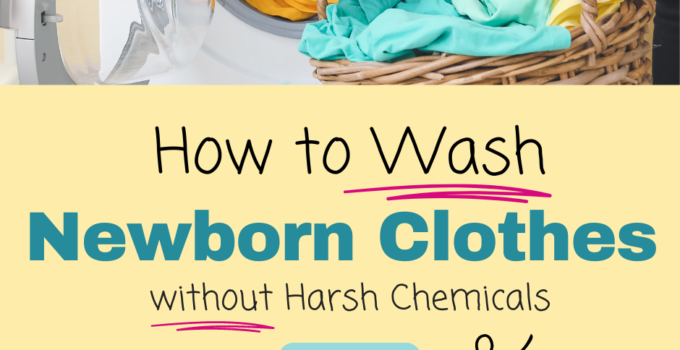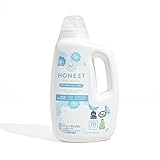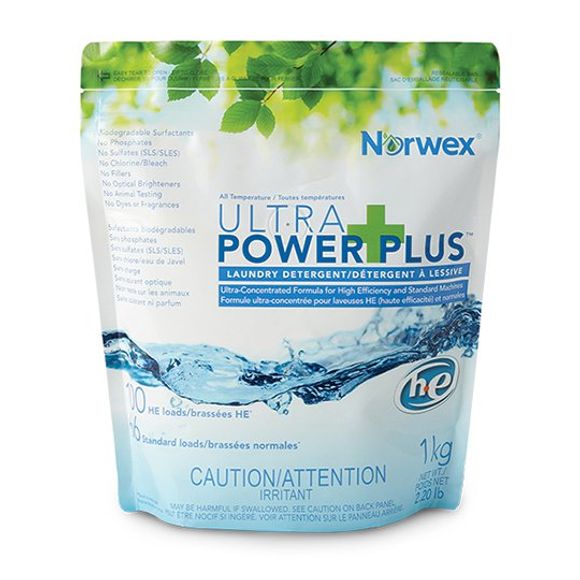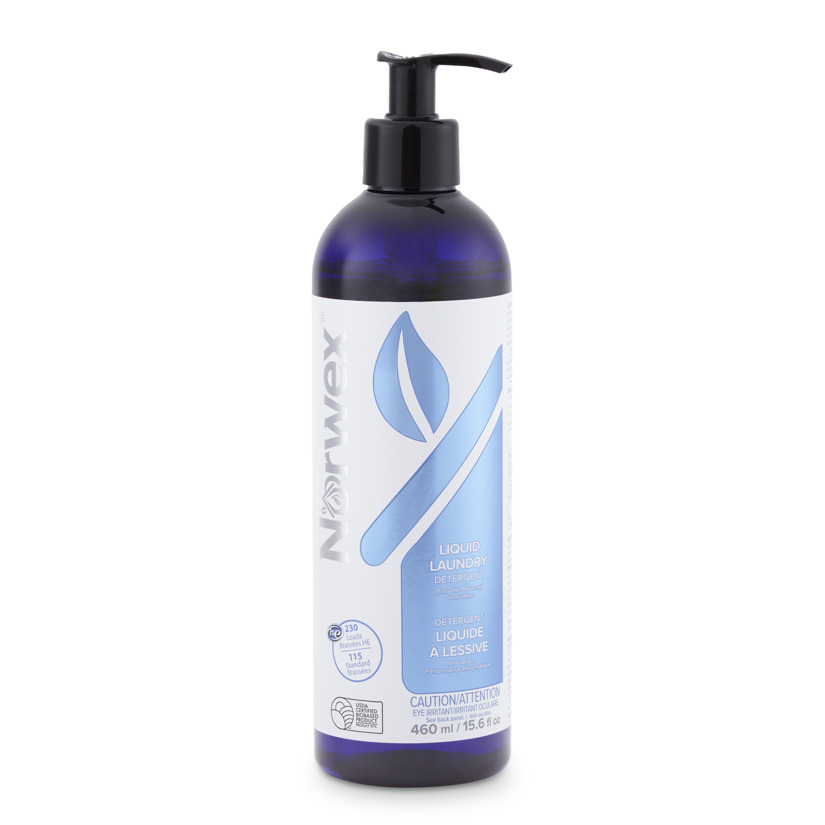Knowing how to wash newborn clothes is just part of the battle, you also need to know how to avoid harsh chemicals. What you wash your newborn clothes in should be fragrance free and free of harsh chemicals for baby’s delicate skin.
Unfortunately, many of the so called baby detergents are full of harmful fragrances and chemicals that not only irritate baby’s skin causing diaper rashes but also can cause internal problems for your little bundle of joy!
How to Wash Newborn Clothes Before Use
You’ll want to make sure you wash newborn clothes first before you have your little one wear them. This goes for all clothing for all ages, but especially important for babies.
Here are some overall new clothes tips:
- The first step is to separate the darker clothing from the lighter clothing in case any colors bleed, especially for new clothing.
- Use cold water in your washing machine to help colors stay bright.
- If you can, use a gentle cycle for baby clothes and even your own clothes to help prolong the life of the clothing.
- Use a fragrance-free laundry detergent that doesn’t contain harmful chemicals, I’ll list some below
- Don’t use fabric softener, it just leaves gunk behind on the clothing which can seep into baby’s skin.
- Dry clothing on low heat to prolong the life of the clothing.
- Note: always look at the tag for care instructions, especially for delicate fabric.
Dangers of ‘Baby Detergent’
As I mentioned above, many name-brand ‘baby detergents’ are actually harmful to babies, inside and out.
Dreft detergent is marketed as THE baby detergent, yet it contains endocrine disruptors, fragrances that cause skin irritation, allergic reactions, and eczema, as well as asthma! This has been public knowledge for years, I knew about it back in 2016 when I had my first baby, yet Dreft is still widely sold, used, and recommended by pediatricians! They must get quite the hefty chunk of change for recommending such a dangerous product.
Dreft gets a grade of an F on the Environmental Working Group (EWG) website due to health concerns of asthma, skill allergies and irritation, developmental and reproductive toxicity, and environmental concerns. The EWG is the go-to place for finding safer personal care products from laundry detergent to sunscreen and shampoo and beyond!
Individually, most of Dreft’s ingredients get a C, D, or F due to how harmful they are to anyone, especially babies.
We have always used unscented detergent for our baby’s clothes, kids clothes, and adult clothes. We can tell when we get clothing second-hand and it’s been washed in Dreft. I end up washing it over and over before the tell-tale Dreft smell lessens.
The best part about not needing a ‘baby detergent’ is that you can wash all of your clothing together!! No more having to separate baby’s clothing from yours, just throw it all in!
Gentle Detergents Safe for Baby
There are many laundry detergents that are gentle and safe for babies through adults.
Here is something to know up front, the name brand detergents you’re used to seeing on the shelf such as Tide, Wisk, Woolite, Arm & Hammer, Purex, and Dreft get D and F ratings from the EWG. So put those out of your shopping cart and your mind.
Below are our favorite unscented laundry detergents that are safe for babies to adults!
The Honest Company Baby Detergent
If you still want a ‘baby detergent’ the Honest Company Baby Detergent, Fragrance Free is a great choice. It has an A on the EWG site and low concern for any type of adverse effects.
As you can see though, it’s not cheap. That’s one of the downsides of a ‘baby detergent’ they cost more yet that doesn’t necessarily mean they are better.
Our Family Preference
We use the Seventh Generation Free & Clear Laundry Detergent for our whole family.
One of the great things about the Seventh Generation Free and Clear Laundry Detergent is that you can get it in smaller, more concentrated bottles so you’re not paying water, the bottle isn’t as heavy, and there is less plastic waste overall since the bottle is smaller but lasts just as long as the big bottle. A little goes a long way!
An odd thing is that the EWG doesn’t have a great rating for this one, though I thought it did when I started using it. Looking closer at the rating, there are only a couple of it’s ingredients that are possibly troublesome so I don’t know how those pulled the overall grade down so far.
Either way, it’s what we use and what I feel safe using for my kids. It’s been great for my kids’ sensitive skin – one kid had eczema as a baby and now has food allergies, I also have very sensitive skin and I do fine with it. One of my twins who reacted to my all-time favorite laundry detergent, doesn’t react to this stuff.
My Preference
My personal preference is the Norwex Ultra Power Plus Powder Detergent as it doesn’t leave a film on the clothing like other detergents. We use it just on my clothing and we’d use it for everyone but one of my twins gets a rash from it. With this detergent, a little goes a long way. I use about 1 tsp per load and it does an amazing job.
I used to only use liquid detergent but have come to love the powder as I don’t need much of it and I’m not paying for the water, I’m paying for the actual detergent.
Norwex products aren’t on the EWG site so I can’t tell you it’s score but I know a lot about Norwex, their company philosophy, and ingredients, which make me feel it’s a great pick.
I use the powder detergent but they also have a liquid detergent if that’s what you’d prefer.
Note: I am a Norwex Consultant, however, I don’t have an active sales site at this time because I’m my own best customer and though I adore the products, I am not salesy about them so don’t make many sales overall to make up for the Norwex website fee. SO My links take you to a friend of mine’s Norwex site. All that to say, this link is not an affiliate link or sponsored link, I’m recommending Norwex products because I love them not because I get something out of it.
More Laundry Tips
Make it Easier
We don’t separate our darks and whites anymore like I did as a younger person. With kids clothing, they grow so fast they typically don’t wear it long enough for the colors to fade or mix as we wash them in cold water and dry on low heat. For the adult clothes in the house, we do wear them for years but also have found no huge difference between when I used to separate darks and lights and now when we don’t.
The only time I separate them is when we are washing new clothes as they often leak some dye in that first wash. Sometimes I just soak them in a little bit of laundry detergent and water to let the extra dye come out before throwing them in with other clothing.
Eco-Friendly & Safer
As I mentioned earlier, I became very toxin-conscious about a year before we had our first child so I’ve never used the traditional baby detergent for my baby’s clothes as I don’t feel it’s safe. We even got free samples of Dreft but we never used them, and I’m glad we didn’t. Regular detergent is the way to go as long as it’s unscented, eco-friendly, and free of harsh chemicals.
Fabric Softener
Gone are the days of using fabric softener, at least, they are for our household. Fabric softener coats the fibers of your clothing and towels with a film that over time rubs off onto your skin, your baby’s skin, and clogs up the fibers of the towel or clothing.
Even unscented versions have harsh chemicals that seep into your skin as you wear or use the item after it’s been washed. It’s really quite scary. If you are looking for something to reduce static cling, Wool Dryer Balls are reusable, natural, and work well! You may need to reduce the overall time your dryer runs once you add in the Wool Dryer Balls as they can reduce the time needed and if you dry things too long, you end up with static anyway. It’s a bit tricky but well worth it.
Also, they aren’t always needed. I haven’t used dryer sheets for several years and rarely use dryer balls, they just aren’t necessary. Sure, if you wear dressy clothing to work that tends to wrinkle, you may want to opt for wool dryer balls, but try without first and see what you think.
These days, less is more!
Warm/Hot Water
Very rarely do we use warm water or hot water. If we were to have a lice infestation, I’d surely use hot water. Other than that though, it’s just not needed. Hot water is hard of the clothing, towels, sheets, and so on as well as raising your gas bill due to the water heater having to work hard to heat the water.
As a new parent, I know it’s overwhelming to decide what to use to clean your baby’s clothes and I hope that this blog post has helped make your decision easier.
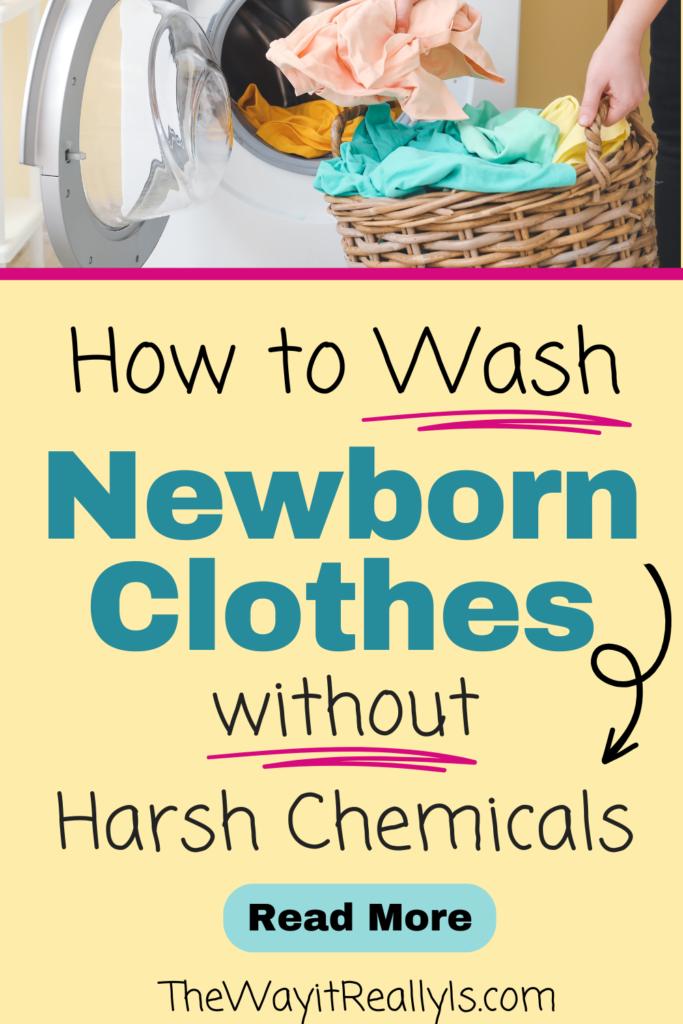
As a mom of identical twins and a son two years older, I have gained invaluable experience in the realm, and chaos, of parenting. With a Master's Degree and Education Specialist Degree in School Psychology, I spent years as a school psychologist, helping children navigate through their educational and emotional challenges. Now as a stay at home mom and professional blogger, I combine my areas of expertise to help you in your parenting journey.

